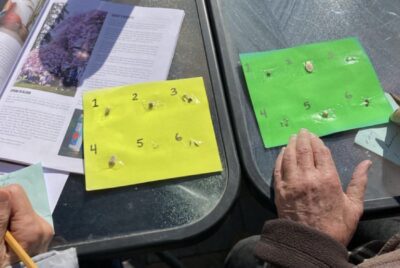RESEARCH
The Effect of Nature therapy for Stress, Anxiety, Depression and Demoralization on Breast Cancer Patients
Summary
This study investigated the potential benefits of nature therapy for patients with breast cancer, who often experience significant stress and mental health challenges. Recognizing that exposure to natural environments and gardening has been associated with improved mental wellbeing, the study aimed to examine the effects of nature therapy on physiological indicators of stress (cortisol) and psychological states including anxiety, depression, and demoralization. The research employed a pre-post experimental design, recruiting eighteen breast cancer patients and dividing them into an experimental group (n=10) and a control group (n=8). Over two weeks, the experimental group participated in nature therapy involving walks in green spaces and caring for potted plants, while the control group continued their usual routines. Physiological measurements (saliva and blood cortisol) and psychological assessments (using scales for anxiety, depression, and demoralization) were conducted both before and after the intervention. Given the small sample size, the analysis relied on nonparametric statistical tests, specifically the Wilcoxon signed-rank test and the Mann–Whitney U test.
The results indicated that the nature therapy program had positive effects on several indicators of stress and psychological distress in the experimental group. The Wilcoxon signed-rank test revealed statistically significant decreases in blood cortisol levels and demoralization scores within the experimental group from pre-test to post-test. Furthermore, the Mann–Whitney U test showed statistically significant differences between the experimental and control groups in post-test salivary cortisol and demoralization scores, with the nature therapy group showing lower levels. Qualitative feedback from participants in the experimental group also highlighted subjective benefits, including relief from anxiety, reduced stress, a clearer mind from being in green spaces, and a sense of accomplishment and positive emotions from gardening activities. The authors concluded that exposure to natural landscapes and gardening provides positive psychological effects and can serve as a complementary treatment for stress, anxiety, depression, and demoralization in breast cancer patients.







